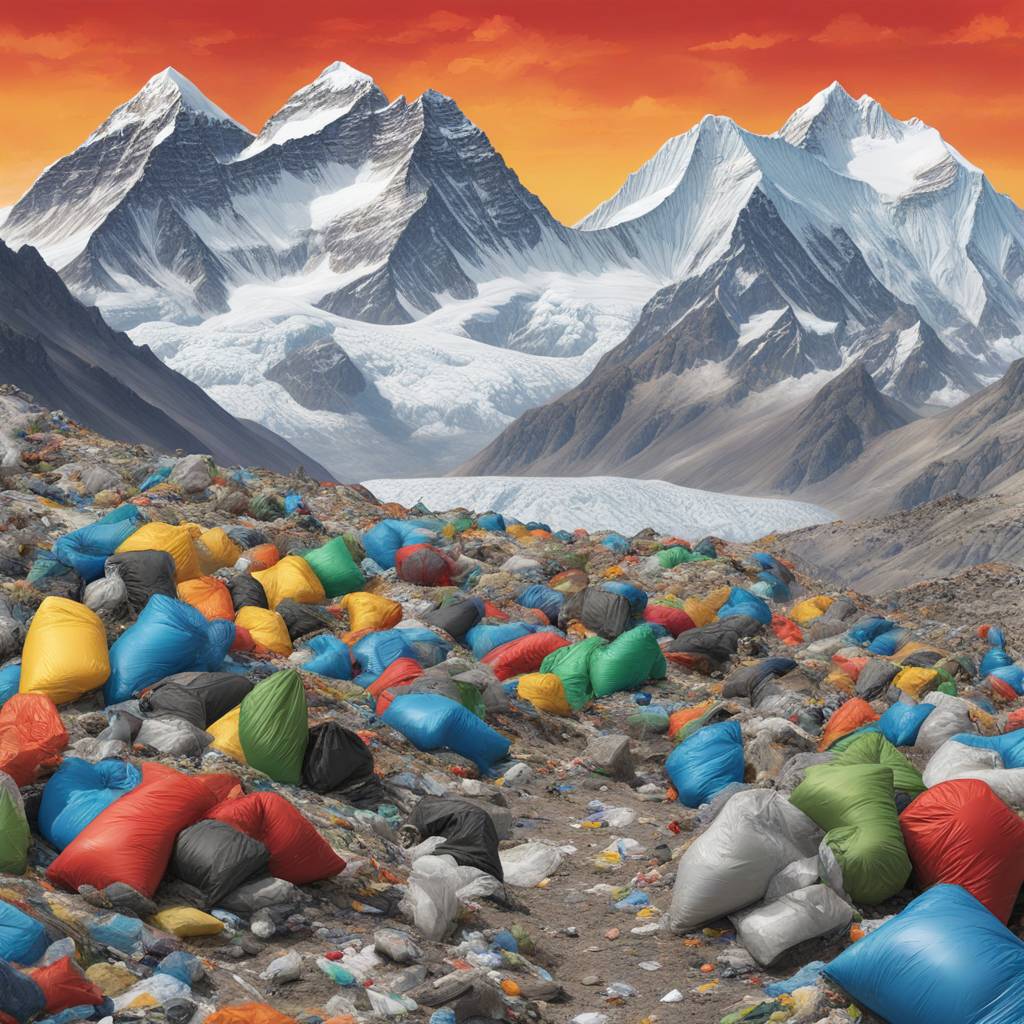Mount Everest climbers are now being required to pick up and bag their own poop before heading up the mountain in an effort to combat the longstanding issue of pollution caused by human waste. The biodegradable bags containing a fragrance-free chemical are meant to be brought back down with the climbers to reduce pollution and waste on the mountain. The Everest Summiteers Association acknowledged that human waste on Everest was a significant problem, and the new initiative aims to address this issue by promoting responsible waste disposal.
In 2022, climbers left behind over 77,000 pounds of human waste on Mount Everest, causing environmental concerns and health risks for residents living near the mountain’s base. To tackle this issue, a mountain cleanup campaign in 2023 collected 78,722 pounds of waste and plastics from Everest, highlighting the urgent need for proper waste management practices. The Nepali Army, in collaboration with Unilever Nepal, took the initiative to spearhead the clean-up efforts and reduce pollution on the mountain, paving the way for a cleaner and safer climbing environment for future expeditions.
With an estimated 1,200 people expected to hike Mount Everest, the implementation of the poop-bagging policy comes at a critical time to address the environmental impact of climbers on the mountain. Tourists typically visit Everest between March and May in the spring and October through November in the fall, making it crucial to educate climbers on responsible waste disposal practices before embarking on their expeditions. Experienced hikers prepare for their “summit pushes” on the mountain each year, aiming to reach the China-Nepal border where the peak is located.
The issue of human waste on Mount Everest poses a significant environmental challenge that threatens both the mountain’s ecosystem and the health of local residents. By requiring climbers to bag their own poop and bring it back down with them, Nepal aims to reduce pollution and waste on the mountain and protect the natural environment. The collaborative efforts of the Nepali Army and Unilever Nepal in organizing clean-up campaigns demonstrate a commitment to addressing this issue and promoting sustainable practices among climbers. Despite the challenges posed by the influx of tourists, the implementation of new waste management policies marks a step in the right direction towards preserving Mount Everest for future generations.
The fragrant-free bags provided to climbers are intended to tackle the longstanding issue of human waste pollution on Mount Everest by promoting responsible waste disposal practices. With over 77,000 pounds of human waste generated by climbers in 2022 alone, the need for proper waste management on the mountain is evident. The efforts of the Everest Summiteers Association, the Nepali Army, and Unilever Nepal in organizing clean-up campaigns highlight a collective commitment to addressing the environmental challenges posed by the influx of climbers on the mountain. Through education and awareness initiatives, climbers can contribute to preserving the natural beauty of Mount Everest and ensuring a sustainable climbing environment for future expeditions.


